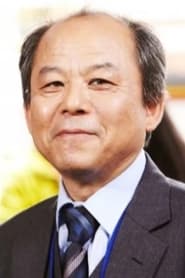
Ask Your Own Question
What is the plot?
In the opening scene of "Childhood Memories," we find Detective Sam Tyler in a dimly lit room, staring at a series of photographs pinned to a corkboard. The images depict various moments from his childhood, triggering a wave of nostalgia and confusion. He is grappling with his current reality, feeling increasingly disconnected from the world around him. The atmosphere is heavy with tension as he reflects on his past, hinting at unresolved issues that will surface throughout the episode.
As the day progresses, Sam is called to a crime scene where a young boy has gone missing. The urgency of the situation pulls him from his introspection. He arrives at the scene, a quiet suburban neighborhood, where the boy's frantic parents are being interviewed by other officers. Sam's focus sharpens as he begins to piece together the timeline of events leading up to the boy's disappearance. He feels a personal connection to the case, recalling his own childhood experiences and the fears that accompanied them.
Sam's partner, Gene Hunt, arrives on the scene, exuding his usual bravado. He dismisses the parents' emotional outbursts, insisting they need to focus on the investigation. Sam, however, empathizes with the parents, feeling the weight of their despair. This moment highlights the growing rift between Sam's compassionate approach and Gene's hard-nosed tactics. Sam's internal conflict deepens as he struggles to balance his instincts with the demands of his role as a detective.
The investigation leads Sam and Gene to a local playground where the boy was last seen. They interview witnesses, including a group of children who were playing nearby. One child mentions seeing a man with a distinctive jacket, which sparks a memory in Sam. He recalls a similar figure from his own childhood, a man who had frightened him. This revelation propels Sam to dig deeper into his memories, blurring the lines between his past and present.
As they continue their search, Sam experiences flashbacks of his own childhood, interspersed with the current investigation. These memories are vivid and emotional, showcasing moments of joy and fear. He recalls a time when he felt lost and alone, mirroring the boy's current predicament. This connection drives Sam to push harder for answers, motivated by a desire to protect the innocent and confront his own fears.
The investigation takes a turn when they discover a lead pointing to a local man with a history of troubling behavior. Sam and Gene confront the suspect, who becomes increasingly agitated under their questioning. The tension escalates as the man denies any involvement, but Sam's instincts tell him otherwise. In a moment of desperation, Sam pushes the man for more information, leading to a heated confrontation. Gene steps in to maintain control, showcasing the dynamic between the two detectives.
As the episode progresses, Sam's memories continue to haunt him, revealing deeper layers of his childhood trauma. He begins to question his own sanity, wondering if he is truly living in the present or reliving the past. This internal struggle culminates in a pivotal moment when he confronts Gene about their differing approaches to the case. Sam's vulnerability shines through as he expresses his fears and frustrations, seeking validation from his partner.
The climax of the episode occurs when Sam receives a tip that leads him to an abandoned building on the outskirts of town. The atmosphere is tense as he enters, flashlight in hand, searching for the missing boy. The building is dark and foreboding, filled with echoes of his childhood fears. As he navigates the space, he hears a faint cry, which propels him forward. The emotional stakes are high as he battles his own memories while trying to save the boy.
In a heart-pounding sequence, Sam finds the boy trapped in a small room, frightened but unharmed. He reassures the child, drawing on his own experiences to provide comfort. This moment of connection is powerful, as Sam realizes the importance of facing one's fears. He successfully frees the boy, and they make their way out of the building just as Gene and the rest of the team arrive.
The episode concludes with a poignant scene back at the precinct. Sam reflects on the day's events, feeling a sense of closure regarding his childhood memories. He acknowledges the impact of his past on his present, but also recognizes the strength he has gained from confronting those fears. Gene, in his typical gruff manner, offers a rare moment of support, acknowledging Sam's dedication to the case. The bond between the two detectives deepens, setting the stage for future challenges they will face together.
Related Titles
Browse All Titles →What is the ending?
In the ending of "Childhood Memories," the episode culminates with the resolution of the central mystery surrounding a series of childhood traumas and the impact they have on the characters. The protagonist, Sam Tyler, confronts his past and the emotional scars that have shaped his present. The episode concludes with a sense of closure for Sam, as he reconciles with his memories and the people involved, leading to a bittersweet but hopeful resolution.
As the episode unfolds, we find Sam Tyler in a dimly lit room, surrounded by the remnants of his childhood. The air is thick with nostalgia and unresolved emotions. He is haunted by memories of a traumatic event from his youth, which has resurfaced in the form of a current investigation. The case involves a series of mysterious disappearances linked to a local park, a place that holds significant meaning for Sam.
Scene by scene, the tension builds. Sam, driven by a mix of determination and vulnerability, delves deeper into the investigation. He interviews witnesses, each revealing fragments of their own childhood experiences, which resonate with Sam's own struggles. The emotional weight of these conversations is palpable, as Sam grapples with feelings of guilt and regret.
In a pivotal moment, Sam visits the park where the traumatic event occurred. The atmosphere is heavy with memories, and he is flooded with flashbacks of his younger self, playing innocently before the darkness of his past intruded. This moment serves as a turning point for Sam, as he begins to understand the importance of confronting his fears rather than running from them.
As the investigation progresses, Sam's partner, Gene Hunt, provides a contrasting perspective. Gene, with his tough exterior, often dismisses the emotional aspects of the case. However, as the story unfolds, we see glimpses of his own vulnerabilities, particularly in his interactions with Sam. Their dynamic shifts, revealing a deeper bond forged through shared experiences and mutual respect.
The climax of the episode occurs when Sam uncovers the truth behind the disappearances. It is revealed that the perpetrator is someone from his past, a figure who embodies the fears and traumas that have haunted him. In a tense confrontation, Sam faces this individual, and the emotional stakes are at their highest. The scene is charged with intensity as Sam confronts not only the antagonist but also his own inner demons.
In the aftermath of the confrontation, Sam experiences a cathartic release. He acknowledges the pain of his past but also recognizes the strength he has gained from it. The resolution is bittersweet; while the scars of childhood remain, Sam emerges with a renewed sense of purpose and clarity.
As the episode draws to a close, we see Sam and Gene standing together, reflecting on the journey they have taken. There is a sense of camaraderie between them, a recognition of the battles they have fought, both externally and internally. Sam's fate is one of growth and acceptance, while Gene, though still gruff, shows signs of emotional depth and understanding.
The final scene leaves viewers with a lingering sense of hope. Sam looks out over the park, a place once filled with fear, now transformed into a symbol of resilience. The episode ends on a poignant note, emphasizing the importance of confronting one's past to move forward into the future.
Is there a post-credit scene?
In "Childhood Memories," the eighth episode of "Life on Mars," there is no post-credit scene. The episode concludes without any additional content after the credits roll, focusing instead on the resolution of the main storyline and character arcs presented throughout the episode. The narrative wraps up the emotional and thematic elements explored during the episode, leaving viewers with a sense of closure regarding the events that unfolded.
What childhood memories does the main character, Sam Tyler, confront in this episode?
In this episode, Sam Tyler confronts memories of his own childhood, particularly focusing on his relationship with his father. He recalls moments that reveal the complexities of their bond, including feelings of abandonment and the pressure to live up to his father's expectations.
How does the case involving the missing child connect to Sam's personal memories?
The case of the missing child serves as a catalyst for Sam's memories, as he sees parallels between the child's situation and his own past. This connection deepens his emotional turmoil and drives him to reflect on his own experiences of loss and longing.
What role does Gene Hunt play in helping Sam navigate his childhood memories?
Gene Hunt acts as both a mentor and a foil to Sam. He provides a tough exterior but also moments of unexpected support, pushing Sam to confront his past while also challenging him to focus on the present case. Their dynamic highlights the contrast between Sam's introspection and Gene's more pragmatic approach.
How does the episode explore the theme of father-son relationships through Sam's memories?
The episode delves into the theme of father-son relationships by showcasing Sam's struggles with his father's legacy. Through flashbacks and conversations, viewers see how Sam's memories shape his identity and influence his decisions as a police officer, revealing the emotional weight of familial expectations.
What emotional impact does the resolution of the missing child's case have on Sam?
The resolution of the case brings a mix of relief and sorrow for Sam. While he feels a sense of accomplishment in solving the mystery, it also forces him to confront unresolved feelings about his own childhood and the relationship with his father, leaving him in a reflective and vulnerable state.
Is this family friendly?
"Life on Mars," season 1, episode 8, titled "Childhood Memories," contains several elements that may be considered objectionable or upsetting for children or sensitive viewers.
-
Emotional Trauma: The episode delves into themes of childhood trauma and loss, which may be distressing for younger audiences or those sensitive to such topics.
-
Violence: There are scenes that depict violence or the aftermath of violent events, which could be unsettling.
-
Mature Themes: The narrative explores complex adult themes, including family dysfunction and the impact of past experiences, which may not be suitable for younger viewers.
-
Intense Emotional Moments: Characters experience significant emotional turmoil, which could evoke strong feelings in viewers, particularly those who have experienced similar situations.
These aspects may require parental discretion when considering the episode for younger audiences.


































